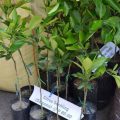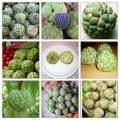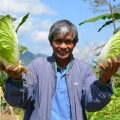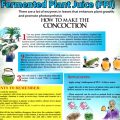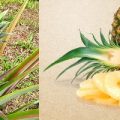The agro-climatic condition of a place is often associated with a particular fruit that is abundantly growing in that locality. For instance, the mere mention of the Cordilleras, with its highlands and cold weather, the first few things that immediately come into mind are strawberries and citrus.
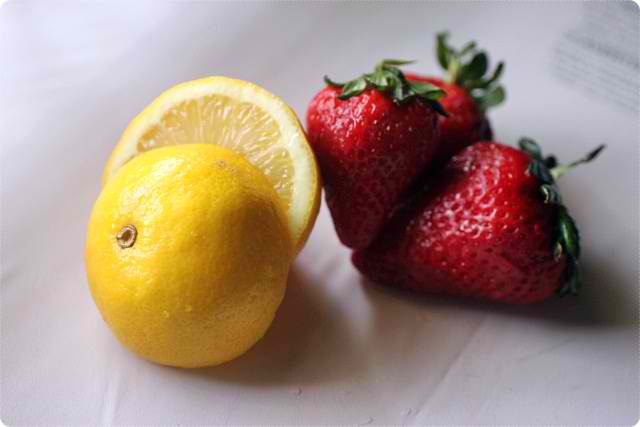
“Fruit production is presently one of the major sources of income in the Cordillera and strawberry and citrus are among the high-value fruit crops in the region,” affirmed Maritess A. Alimurung, researcher and project leader from the Bureau of Plant Industry-Baguio National Crop Research Development and Production Support Center (BPIBNCRDPSC).
Strawberries are mostly grown in Benguet and part of Baguio City and some farmers are now starting to grow in other municipalities of Benguet (Atok, Buguias, Kibungan, and Mankayan) and Mountain Province (Bauko and Sagada). Meanwhile, citrus with its wider cultivation, can be seen in the Cordillera and other regions in the country.
“Varieties which are mostly National Seed Industry Council (NSIC)-registered are being mass propagated at BPI-BNCRDPSC and different growers are getting planting materials for rehabilitation and establishment of new citrus orchards both under backyard and commercial scale,” Alimurung said.
Farmers are reaping the fruits of good income because of the favorable climate and established good cultural management practices but due to pest infestation coming, quality and volume of produced fruits are being compromised.
“Infestation of different pests like mites, whiteflies, thrips, aphids, fruitflies and fruit bugs is presently a major problem on both strawberries and citrus. High infestation occurs during the dry months which are also the period of flowering and fruit development of both fruit crops,” Alimurung explained.
Thus farmers resort to the use of synthetic pesticides because of high pest infestation especially during the flowering and fruit development stage. “With the present pest problem affecting strawberry and citrus production and the different factors contributing to the continuous or permanent infestation and severe damage of the pests, different strategies are needed for better management of the different pests. At present organic crop production is being promoted and practices to promote organic fruit production must be evaluated,” she added.
With this premise, a team of researchers from BPI- BNCRDPSC conducted a project to identify effective pest management strategies for organic production of strawberry and citrus in the Cordillera. The initiative was funded and supported by the Bureau of Agricultural Research.
Four studies were conducted to manage population and damage of white grubs of snoutbeetle (Metapocyrtus (Trachycyrtus) spp.) attacking both strawberry and citrus, two spotted mites (Tetranychus urticae Koch) on strawberry and citrus red mites (Panonychus citri). Effect of fungal biological control agents Metarrhizium anisopliae and Beauvaria bassiana, agricultural oil sprays, wood vinegar and botanical extracts were evaluated on mites. Beauveria and Metarrhizium isolates MA-RB and MA-RBB were found more effective among the isolates tested.
It was found that soil application of these fungi, one week before transplanting and followup application one month after transplanting, significantly reduced population and damage of white grubs that were feeding on the roots. Spraying of the fungus late in the afternoon using 300 to 400 g fungus grown in cracked corn mixed in 16 li water also reduced population of mites and application at early pest population are more effective.
Spray oils, wood vinegar and plant extracts evaluated against two spotted mites on strawberry and red mites on citrus significantly reduced population and damage. Mineral oil at 1-1.5 percent rate of application, hot pepper and ginger extract at 30 to 40 ml per li water applied every 1-2 weeks were more effective. Application during late afternoon controlled build-up of mite’s population and resulted to lower degree of damage and higher marketable yield on strawberry and better growth of citrus seedlings.
Evaluated products/practices that were considered compatible with organic production are now being promoted through developed IEC, during trainings on organic production in the region and also to individuals or groups who are availing of fruit planting materials at BPI-BNCRDPSC. Results of the project were also presented in different scientific conferences for wider technology dissemination and promotion. ### by Ma. Eloisa H. Aquino http://www.bar.gov.ph
———
Contact details Maritess Alimurung Agriculturist/Project Leader BPI-BNCRDPSC, Guisad, Baguio City phone: (074) 445-9084, 445-9085 or 300-3584 email: tessamoy@yahoo.com
